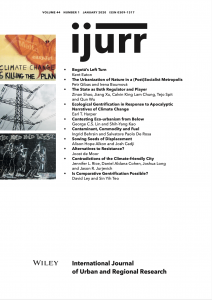For the political left, decentralization has increased both the appeal and the importance of governing the city, and yet sharp constraints limit the left’s transformative potential when it controls that level of government alone. Bogotá is an important case in point under the recent mayoral administration of Gustavo Petro (2012–15), a demobilized guerrilla leader who sought to implement a series of urban policy reforms that together represent one of the most substantively radical and intellectually coherent attempts to challenge neoliberalism in all of Latin America. Focusing on the four policy arenas through which Petro hoped to transform the city (environment, housing, transport, and trash collection), the article documents the veto power of the firms whose privileges he threatened, as well as the tools through which they derailed reform. In contrast to the failure of his political economy agenda, Petro was indeed able to enact a number of progressive social policy reforms precisely because they did not threaten the profitability of the city’s entrenched growth machine.

